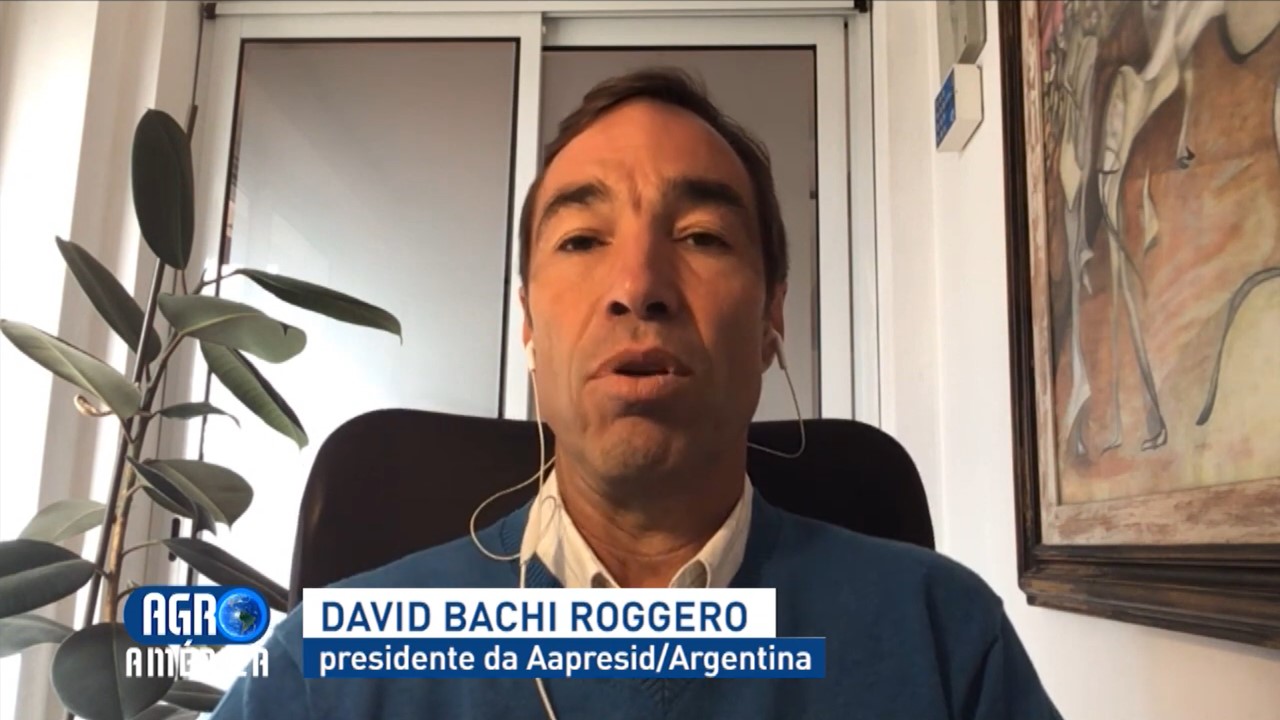David “Bachi” Roggero, President of the Argentine No-Till Farmers Association (AAPRESID), shared some secrets behind the model of economic, social and environmental sustainability promoted by the organization in an interview with AgroAmerica, a program broadcast on the Brazilian TV network AgroMais.

Brasilia, 30 June 2021 (IICA). Based on a mutual concern for preserving soil health, considered a primary resource, 30 years ago, a group of Argentine farmers partnered to promote sustainable practices and developed a new direct sowing-based model that today is replicated and carefully observed not only across the region, but also around the world.
The organization is known as the Argentine No-Till Farmers Association (AAPRESID), whose president, David “Bachi” Roggero, shared some secrets behind the model of economic, social and environmental sustainability promoted by the organization in an interview with AgroAmerica, a program broadcast on the Brazilian TV network AgroMais.
“We promote the sustainable production of fibers, food and energy, not only for Argentina, but for the world, based on science, teamwork, and a focus on innovation”, stated Roggero.
The farmers organization started with a focus on no-till farming. The leader explained that “5,000 years ago, tillage was adopted as the only means of production, but 30 years ago, we started this new journey with the aim to protect the soil. That was the first change and now we are immersed in a new paradigm shift that consists of intensifying crop rotation or what we call ‘always green farming’. The goal is to have green, living plants on the surface based on the area’s agro-climatic conditions”.
Roggero explained that in addition to no tillage, other good practices applied by AAPRESID include a balanced contribution of nutrients to the soil and the responsible use of phytosanitary products in both agricultural and livestock production.
“Science has proven that crop rotation improves soil health as opposed to monocropping”, he affirmed. “Soil is a living organism just like human beings and needs a balanced and diversified diet. That’s why we say that the direct sowing system is not as simple as zero tillage”.
Roggero also underscored the role played in environmental sustainability by what he called “ecosystem services crops”, which contribute to keeping the soil covered in the interval between the main harvests, to retaining nutrients and to sequestering carbon. “The path to saving our planet is by removing carbon from the atmosphere through living plants”, he said.
He also highlighted the collaboration between AAPRESID and the Inter-American Institute for Cooperation on Agriculture (IICA) through the “Living Soils in the Americas” program, launched in December of 2020 with scientist Rattan Lal from Ohio State University. The program’s goal is to coordinate public and private efforts to combat soil degradation, a phenomenon that undermines the ability of the countries to satisfy the food demand in a sustainable way.
“We could say that this initiative of IICA speaks the same language as always green farming promoted by AAPRESID. The soil is a living organism and we need to feed it and care for it. Not just anything will do. We maintain a close relationship with IICA and are grateful for this exchange”.
Roggero emphasized the virtues of Argentine farmers who are key actors in the country’s economic and social development: “Argentine farmers are innovative and restless. We are used to working with rules that change rapidly and we have to adapt immediately so as not to be left behind. That makes us fast decision makers”.
Finally, he referred to the global debates on agriculture and the questions he receives about the organization’s role in the planet’s environmental sustainability: “Globalization has many positive aspects, but it also has not-so-positive collateral aspects, like many people just repeating information with no scientific basis. This a concern and a challenge going forward. We are convinced that the members of AAPRESID are promoting agro-ecological production, in the sense that we are combining agronomy and ecology. We try to produce healthy foods in sufficient quantities for the growing demand, while having the least impact possible on the natural environment. It’s impossible for man to carry out productive activities without producing collateral effects. Whenever we do one thing, it has an impact, which could be big or small. We produce food and also care for the environment”.
AgroAmerica is a program broadcast by the Brazilian network AgroMais TV (owned by Grupo Bandeirantes) and the result of an alliance with the Inter-American Institute for Cooperation on Agriculture (IICA). The program presents the reality of the agricultural sector and rural areas in IICA member states with the aim to promote an exchange of experiences and a discussion on the challenges and opportunities in Latin America and the Caribbean in the area of agricultural and rural development.
More information:
Institutional Communication Division.
comunicacion.institucional@iica.int











